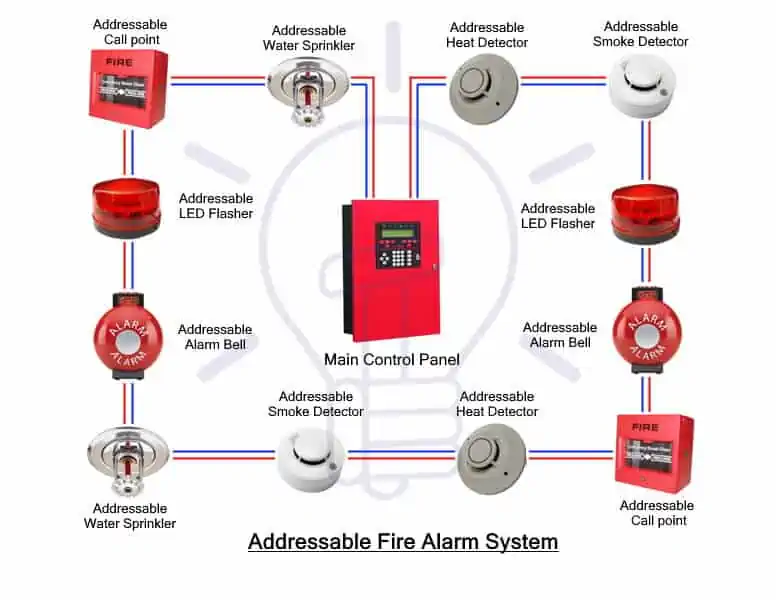Fire alarm systems are an essential component of any building’s safety infrastructure. These systems are designed to detect the presence of smoke, heat, or flames and alert occupants of a potential fire. In this article, we will explore the different types of fire alarm systems, their components, and their importance in keeping buildings safe.
Types of Fire Alarm Systems:
There are two primary types of fire alarm systems: Conventional and Addressable.
Conventional fire alarm systems are the simplest type of fire alarm systems. In this type of system, the building is divided into different zones, and each zone has a separate detection circuit. When a fire is detected in a particular zone, the alarm sounds in that specific zone, allowing occupants to evacuate the affected area quickly. Conventional fire alarm systems are suitable for small buildings with limited needs.
Addressable fire alarm systems are more complex and allow for more precise detection of fire. These systems have individual detectors that are assigned an address, allowing the system to pinpoint the exact location of the fire. This feature is particularly useful in large buildings where it may be challenging to identify the exact location of a fire.
Components of a Fire Alarm System:
Fire alarm systems consist of several components that work together to detect and alert occupants of a potential fire. The key components of a fire alarm system are:
Control Panel: The control panel is the brain of the fire alarm system. It receives signals from the detectors and sounds the alarm when it detects a fire.
Detectors: Detectors are the devices that detect the presence of smoke, heat, or flames. They can be either ionization or photoelectric.
Notification Devices: Notification devices are the devices that alert occupants of a potential fire. These devices can include bells, horns, strobe lights, and voice alarms.
Power Supply: The power supply is what provides power to the fire alarm system. It can be either battery-powered or hard-wired.
Importance of Fire Alarm Systems:
Fire alarm systems play a critical role in keeping buildings safe. They provide early warning of a potential fire, allowing occupants to evacuate the building before the fire spreads. Here are some of the key reasons why fire alarm systems are essential:
Early Detection: Fire alarm systems are designed to detect fires in their early stages. This early detection can be the difference between life and death in an emergency situation.
Rapid Response: Fire alarm systems sound an alarm as soon as a fire is detected, allowing occupants to evacuate the building quickly and safely.
Minimize Property Damage: Early detection and rapid response can help minimize property damage caused by a fire. The sooner the fire is detected, the faster emergency services can respond to put out the fire.
Compliance with Building Codes: Fire alarm systems are required by law in most commercial and residential buildings. Compliance with these codes is essential to ensure the safety of occupants.
Conclusion:
Fire alarm systems are a critical component of any building’s safety infrastructure. They provide early detection and rapid response to potential fires, allowing occupants to evacuate the building safely. When designing a fire alarm system, it is essential to consider the size of the building and the specific needs of the occupants. Proper installation and maintenance of fire alarm systems are crucial to ensuring their effectiveness. Investing in a reliable fire alarm system can save lives and protect property in the event of a fire.


